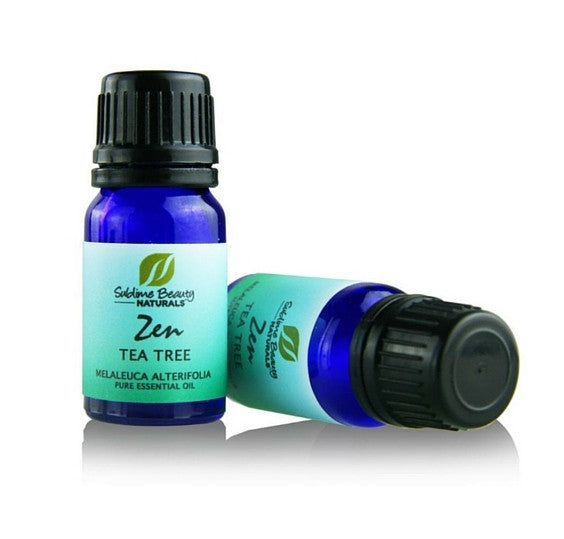Tea Tree | Melaleuca (Melaleuca alternifolia)
Countries of Origin: Native to Australia; South Africa
Plant Part Used: Leaves.
Extraction Method: Steam Distilled
Some of the powers of Tea Tree essential oil:
- Acne Treatment: Well-known and tested in the treatment of acne; it also helps reduce lesions.
- Strong Anti-bacterial and Airborne Antimicrobial: The components, including terpinen-4-ol, α-terpineol, and α-pinene, are active against Staphylococcus aureus, S. epidermidis and Propionibacterium acnes (11), and MRSA, Candida and a wide spectrum of microbes. Tea Tree is well suited to diffuse as an aerial antiseptic. It was demonstrated (12) that the vapors of Tea Tree in conjunction with Geranium were the most active against MRSA of all the oils and combinations investigated.
- Anti-Fungal: Tea Tree is an exceptional product to fight fungus. It is active against dermatophytes, and against clinical Candida species (thanks to component 1,8 cineole). Tea Tree is shown to be synergistic with Clove as well.
- Oral Care: Tea Tree is known to aid in oral care. 1 drop in toothpaste daily can help prevent gum disease, infections including oral candidiasis, and prevent sore throats.
- Analgesic and Anti-inflammatory: Tea Tree can reduce pain and reduce inflammation.
- Immune System: Tea Tree’s powers —antimicrobial, antiviral, anti-inflammatory, and antiallergy—help support a strong immune system.
- Mood: Tea Tree helps refresh the mind, gives feelings of optimism and helps energize.
Anecdotes: Australian aborigines crush tea tree leaves for a poultice that treats skin infections, wounds, and burns. Melaleuca Alternifolia got the name Tea Tree from Captain James Cook, a lieutenant with the British Royal Navy, who used the leaves to brew tea.
